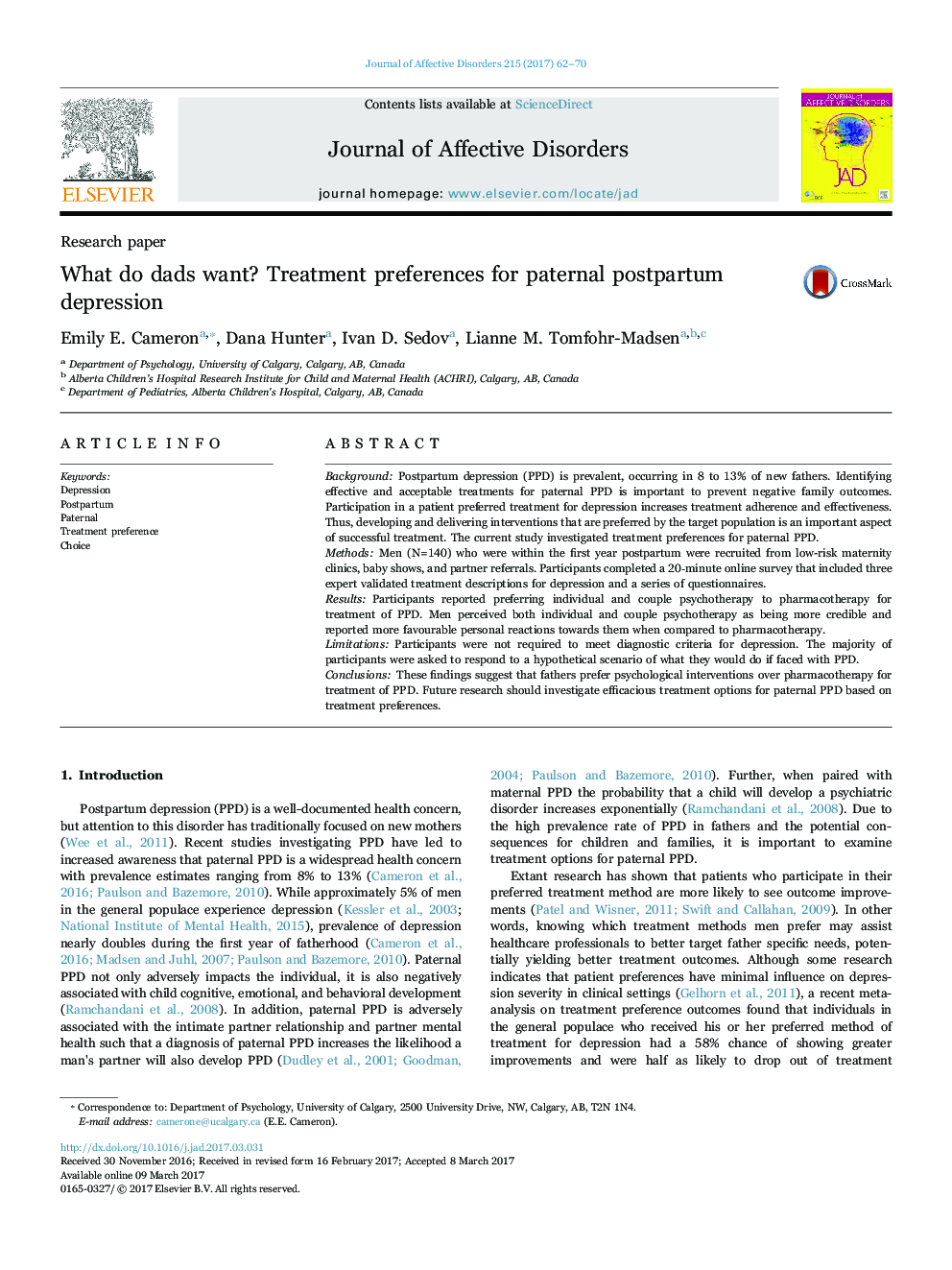| Article ID | Journal | Published Year | Pages | File Type |
|---|---|---|---|---|
| 5722327 | Journal of Affective Disorders | 2017 | 9 Pages |
â¢New fathers reported a treatment preference for psychotherapy over pharmacotherapy.â¢There was no difference in preference for individual versus couple psychotherapy.â¢Preference was not associated with paternal and maternal depressive symptoms.â¢Relationship satisfaction and social support did not impact treatment preference.â¢Psychotherapeutic interventions for paternal PPD should be investigated.
BackgroundPostpartum depression (PPD) is prevalent, occurring in 8 to 13% of new fathers. Identifying effective and acceptable treatments for paternal PPD is important to prevent negative family outcomes. Participation in a patient preferred treatment for depression increases treatment adherence and effectiveness. Thus, developing and delivering interventions that are preferred by the target population is an important aspect of successful treatment. The current study investigated treatment preferences for paternal PPD.MethodsMen (N=140) who were within the first year postpartum were recruited from low-risk maternity clinics, baby shows, and partner referrals. Participants completed a 20âminute online survey that included three expert validated treatment descriptions for depression and a series of questionnaires.ResultsParticipants reported preferring individual and couple psychotherapy to pharmacotherapy for treatment of PPD. Men perceived both individual and couple psychotherapy as being more credible and reported more favourable personal reactions towards them when compared to pharmacotherapy.LimitationsParticipants were not required to meet diagnostic criteria for depression. The majority of participants were asked to respond to a hypothetical scenario of what they would do if faced with PPD.ConclusionsThese findings suggest that fathers prefer psychological interventions over pharmacotherapy for treatment of PPD. Future research should investigate efficacious treatment options for paternal PPD based on treatment preferences.
